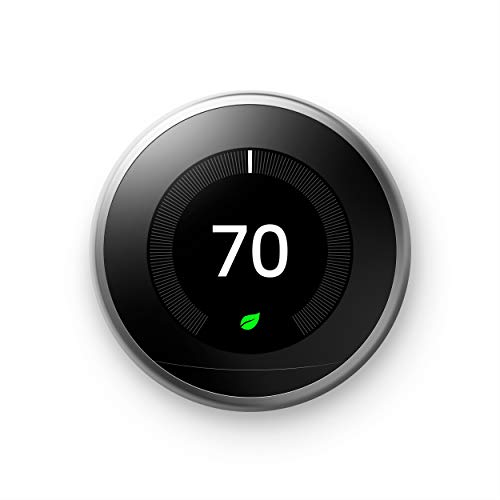Did you suddenly notice that your electric heater or furnace has gone on and off many times within the hour, and you’re wondering what is going on? You don’t need to keep wondering because we looked up this question, and we’re here to give you the answer.
This issue is called short cycling, and there are several common causes behind this:
- The air filter is clogged
- Thermostat error
- Broken overheat limit sensors or high-temperature limit switch
- Error with the sequencers
- The heater is incorrectly sized for the room
We elaborate on each of these reasons in the succeeding sections. Additionally, we included some common heater issues and how to troubleshoot them. Let’s read on!
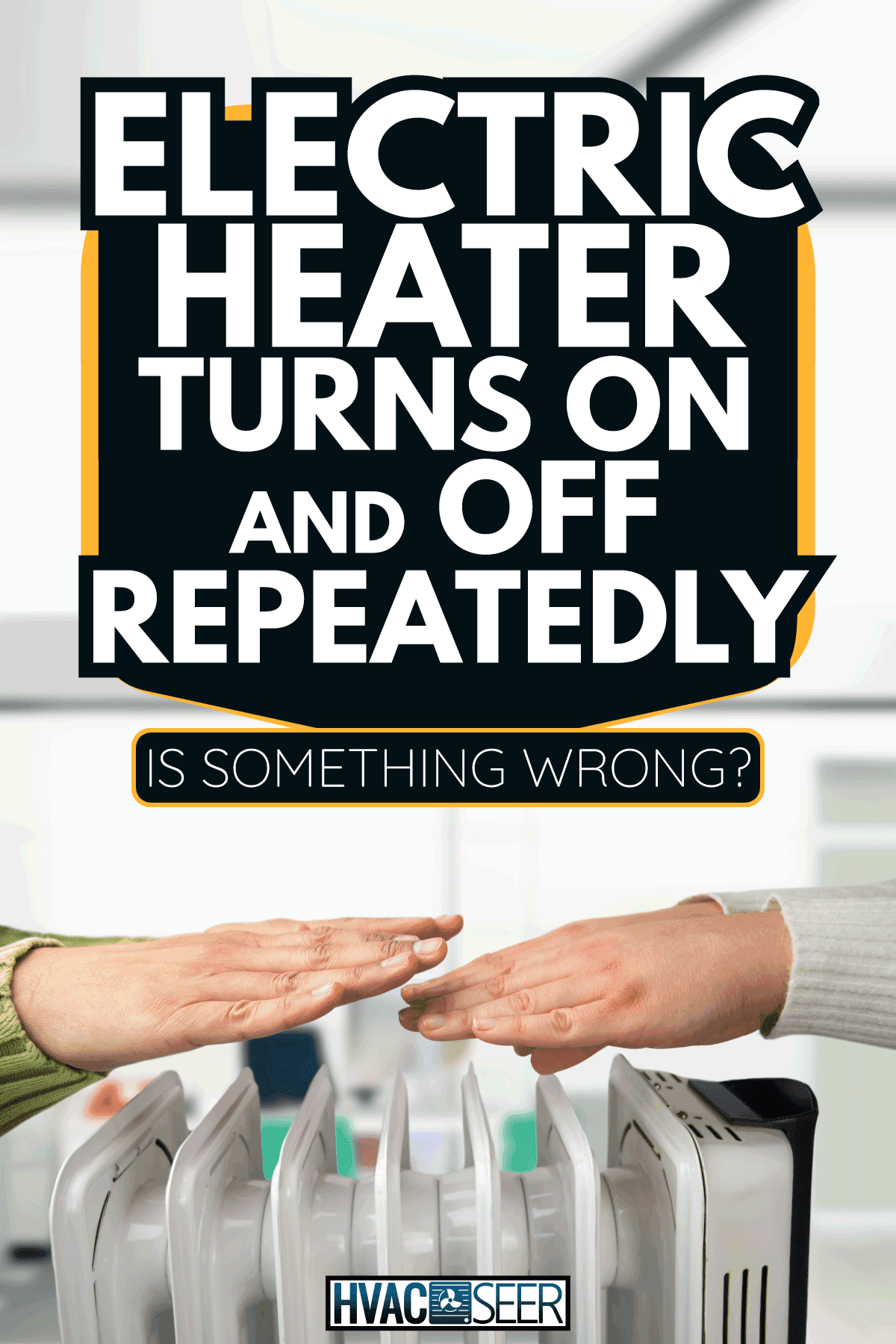
Electric Heater Turns On And Off Repeatedly—Is Something Wrong?
The air filter is clogged
A clogged air filter reduces the amount of cool air that flows into the heater. This can cause your electric heater to overheat.
Most electric heaters will automatically shut themselves down when they overheat. This is to protect the internal components. Replacing the air filters will resolve this issue.
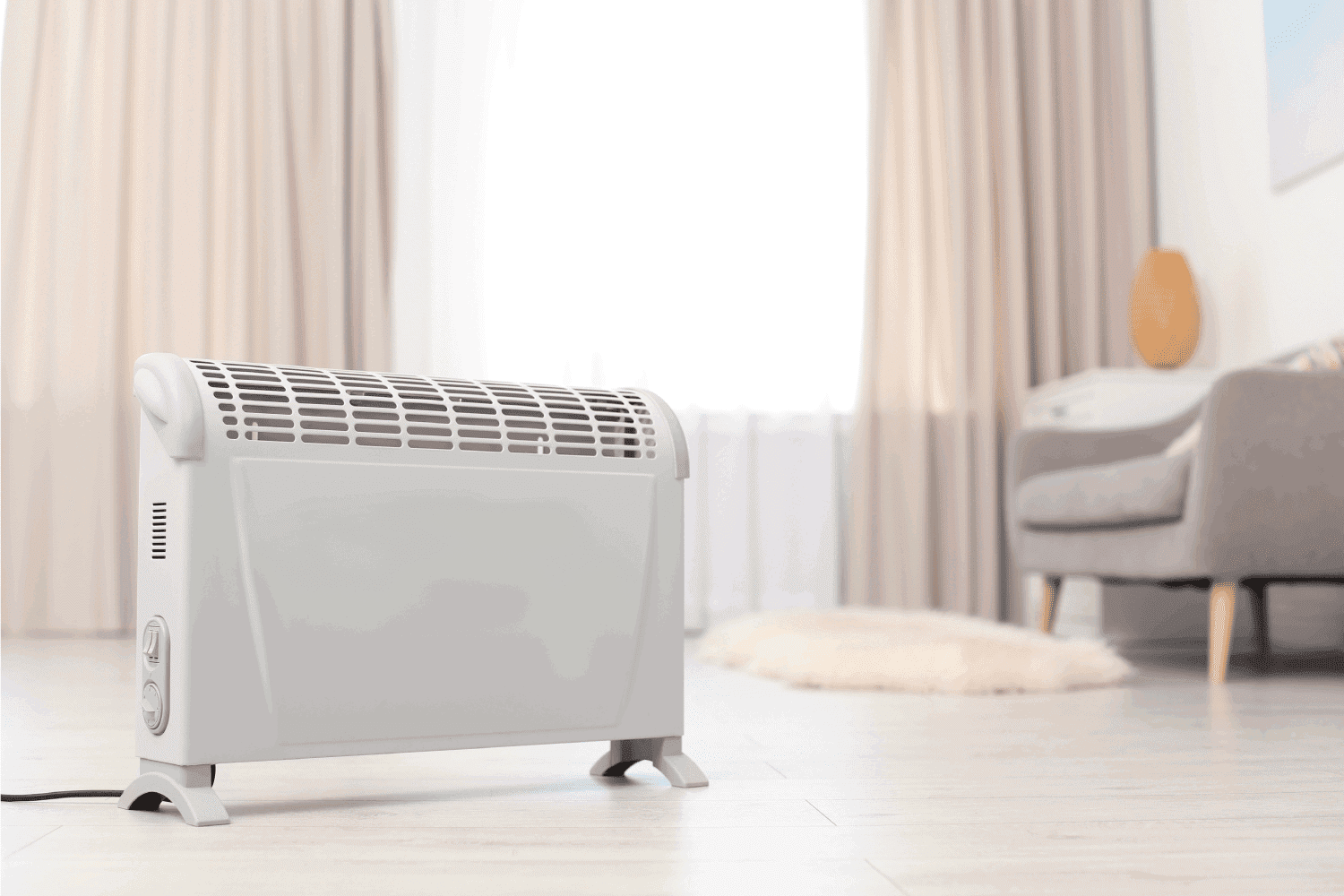
Thermostat error
An error on your thermostat will cause it to read the wrong temperature. A wrong temperature reading can lead to wrong signals sent by the thermostat to the heater—sending it the signal to shut down when it shouldn’t.
Make sure that your thermostat is in the “on” position and that it is set to the “heat” function. If you’re using a programmable thermostat, check the programming overrides and ensure that they are not impeding your heater.
Some thermostats require batteries to function. A low battery can cause the thermostat to constantly turn on and off and receive wrong temperature readings. Check the batteries on your thermostat and replace them as needed.
Flawed thermostat placement
The thermostat may be installed in a bad location that prevents it from getting an accurate temperature reading. And this causes the thermostat to send the wrong signals to your heater.
A thermostat installed near a heat-producing appliance can record the wrong temperature. A stove or an oven can make the thermostat detect a warmer temperature than the room actually is. A thermostat exposed to direct sunlight will have the same issue.
In these cases, the thermostat could cause your electric heater to keep turning off and on. Installing the thermostat in a more appropriate and central location would address this issue.
The Google Nest Learning Thermostat works with Alexa. Check it out on Amazon, with this link.
Broken overheat limit sensors or high-temperature limit switch
An overheat limit sensor is a safety feature of electronic heaters that detects if the heater is starting to overheat. If it detects unsafe temperatures, it will shut down the heater automatically.
Some electric heaters have dual overheat limit sensors—one at the air inlet area and another at the air outlet area. Both are connected to the heating element, and both will disconnect the power when either one of them detects a very high temperature.
If the overheat limit sensor is malfunctioning, it could be registering an overheating when there is none and cause the electric heater to keep turning off and on. If this is the case, the overheat limit sensor needs to be replaced. Contact a heater professional to replace the overheat limit sensor.
Error with the sequencers
An electric heater or furnace has several electronic heating elements that generate heat through coils similar to the heating element inside a toaster or electric oven. However, these heating elements cannot all turn on at once because this will overload the circuit or trip the circuit breaker.
The function of sequencers, therefore, is to adequately space the turning on of the heating elements—causing them to turn on in a specific sequence. A broken sequencer can cause all of the heating elements to turn on at once, tripping the circuit breaker or preventing the entire set of heating elements to turn on.
Contact a heating specialist to check the sequencers and replace them as necessary if you suspect that this is the problem.
The heater is incorrectly sized for the room
A portable electric heater can go off and on if you’re using it to heat a single room and it is too big or too powerful for that room. The reason for this is that a large heater will be able to warm the room too fast and it will shut down once it has reached the target temperature.
To address this issue, use a smaller heater to heat smaller rooms.
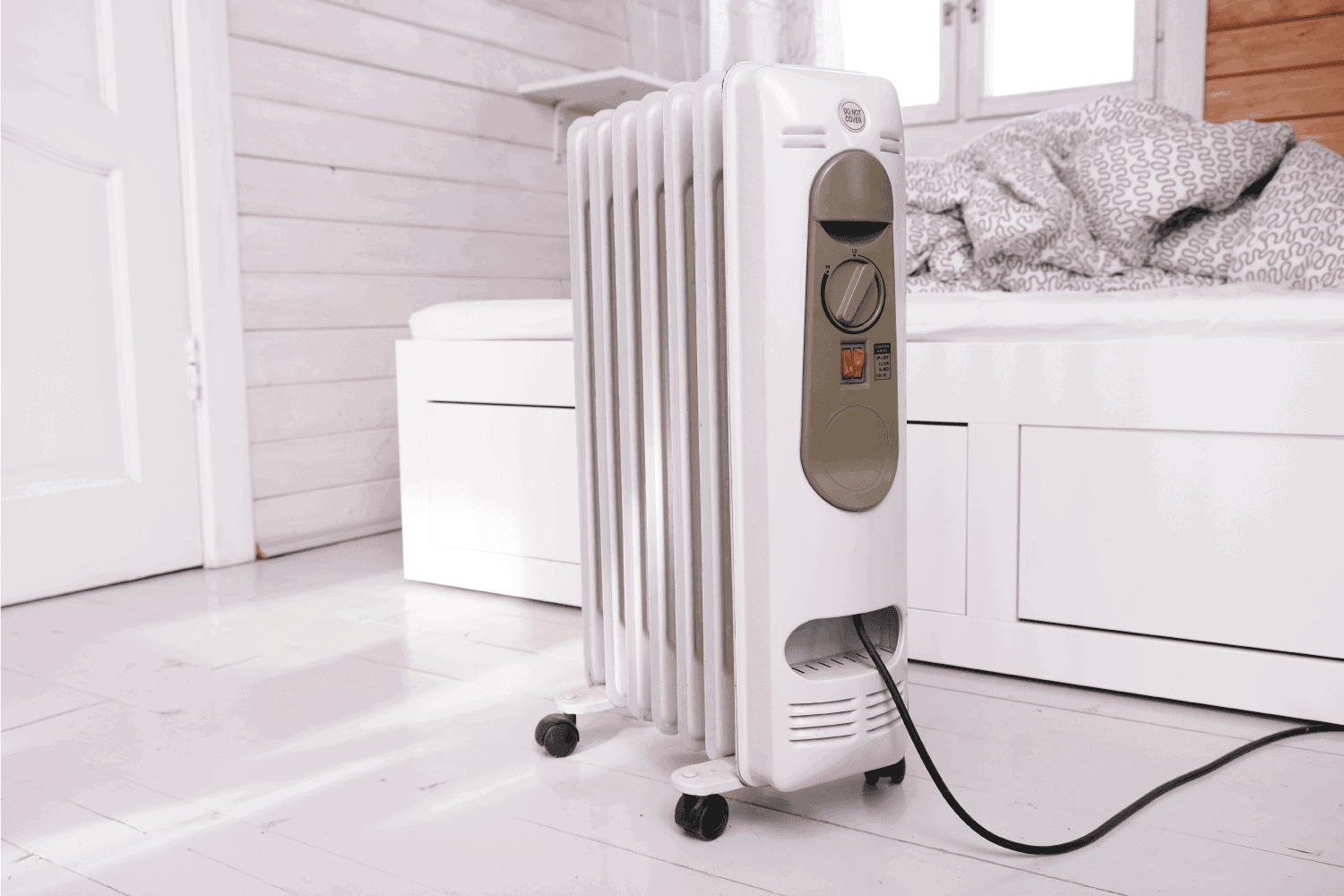
How often should an electric furnace cycle?
On average, a furnace would turn on and off anywhere from three to eight times per hour. If your furnace is turning on and off more frequently than this, don’t immediately assume that it is short cycling.
Factors that can influence furnace cycling off and on
The number of times that your furnace turns on and off is dependent on several factors. Your home’s insulation, outdoor temperature, characteristics of the house, and even the furnace's age can all affect the cycling of your furnace.
Why is this a problem?
Short cycling places a lot of stress on the components of your heater—nearly doubling its workload. It requires a large amount of energy to start the heating cycle, and if your heater is doing this two or even three times as often, that means that it is aging two or three times as fast as well.
This equates to more repairs, more parts replacement, and a shorter heater lifespan. Moreover, the additional workload equates to more energy consumed, and this equates to higher electrical and/or gas bills.
Short cycling makes it harder to maintain a constant temperature inside your house. This is because the heater is not staying on long enough to distribute heat evenly throughout your house. Some parts of your house will remain cold while some are warm.
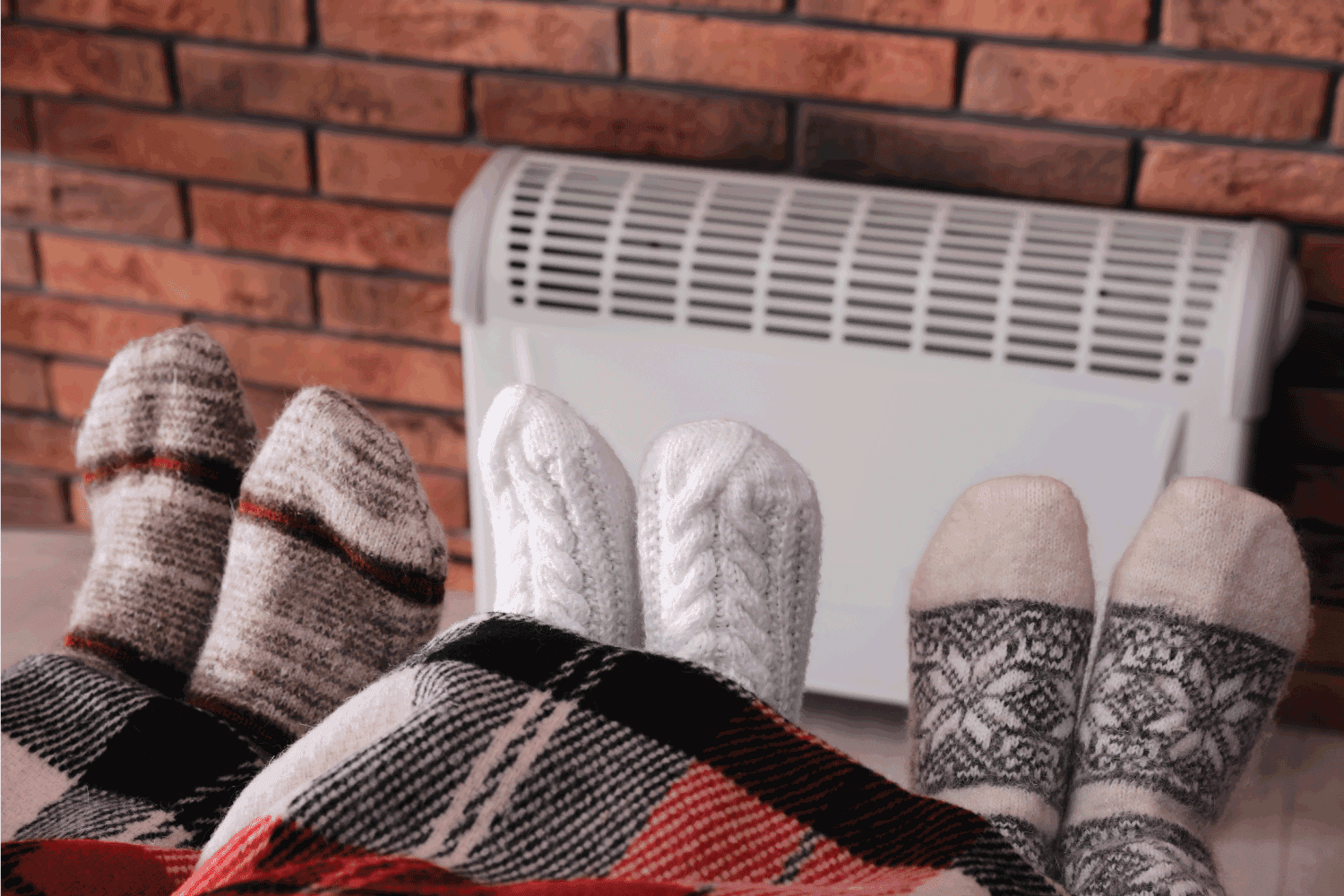
Electric space heater turns on and off repeatedly
Space heaters are appliances that are used to warm specific areas inside the house.
Inadequate power supply
The space heater can turn off and on if it is not getting enough electrical power to turn into heat. This is often caused by a faulty power socket. If it is not properly plugged in, the loose connection can cause it to turn on and off intermittently.
Thermostat
Similar to a regular heater, a faulty thermostat can cause a space heater to turn on and off. Check the section on thermostats above to address this.
Auto-safety shut off
Recent models of space heaters are equipped with an auto-safety shut-off feature that helps prevent the space heater from causing fires. If the space heater is tipped, overheats, or experiences a malfunction, the auto-safety shut-off feature will automatically turn off the space heater.
If the sensors that this feature uses malfunctions, it can cause the space heater to turn on and off intermittently.
Dirty air filter
A dirty air filter can restrict the amount of air that gets into the space heater. This can cause the space heater to quickly overheat and shut off automatically.
Cleaning or replacing the air filter will fix this problem.
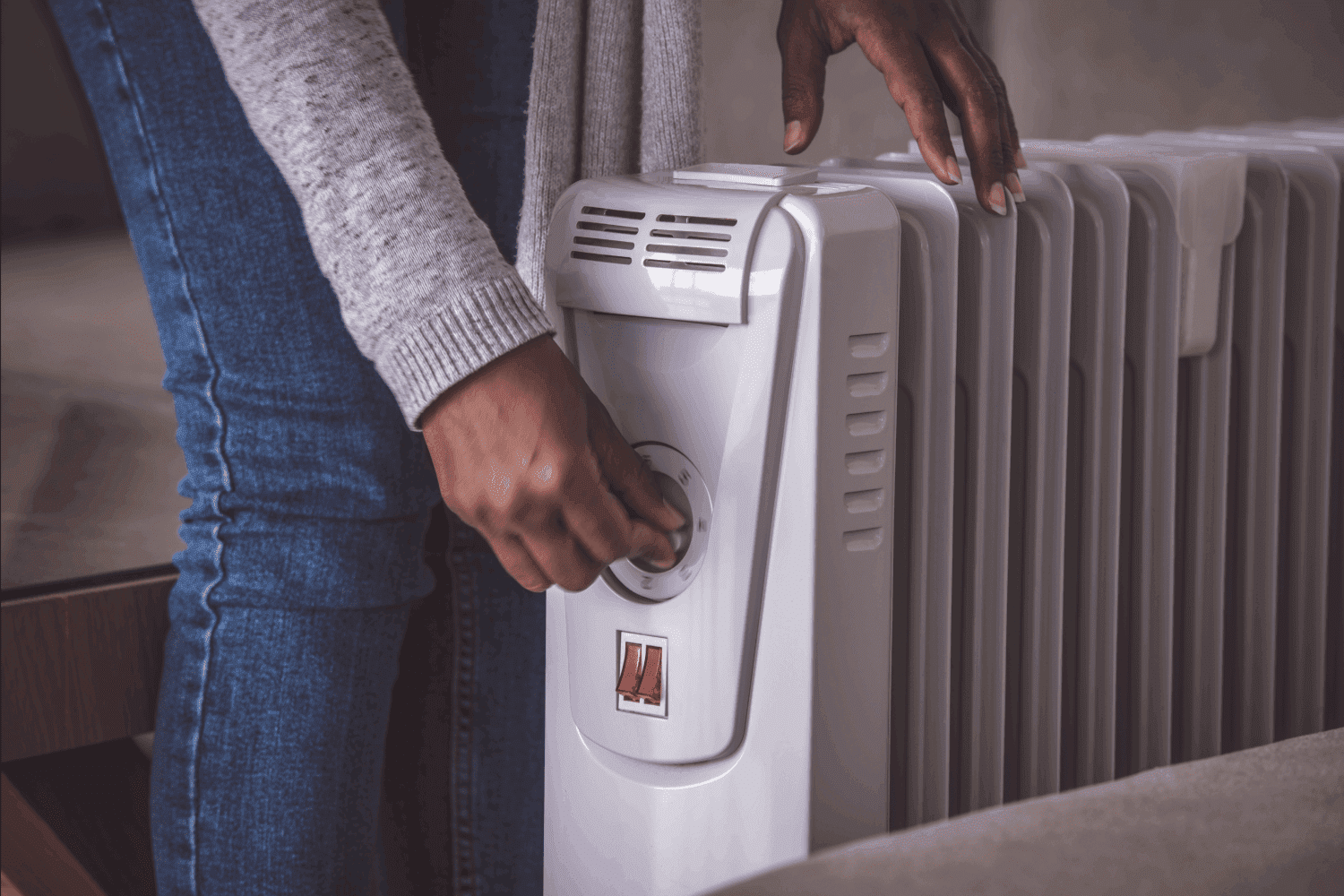
How do I reset my space heater?
Follow the six simple steps below to reset your space heater.
- Switch off the space heater.
- Turn off the thermostat.
- Unplug the space heater.
- Check for obstructions on its airways and clear them if there are any.
- Wait for 15 minutes. This is to give the machine enough time to cool down sufficiently.
- Switch it back on. Wait for at least 10 minutes, then check if it is releasing warm air.
Precautions to take when using room or space heaters
The air is dry during the winter months, and using a room or space heater can make the air even dryer. Dry air can cause skin, eyes, throat, and nose irritation. Place a mug of water near the room or space heater to help restore moisture in the air.
Do not place anything combustible near the room or space heater. Items like paper, curtains, bedding, blankets, and furniture should be kept at least four feet away from space heaters.
Keep the heater on a level, inflammable, and solid surface. Do not put it on top of carpets, wood, cloth, or plastic surfaces.
Keep pets and kids away from the room or space heater to prevent them from getting hurt.
Never leave the space heater unattended. Turn it off and unplug it from the wall socket before you leave the room.
Heat up to 200 square feet with a portable heater. See this electric heater on Amazon.
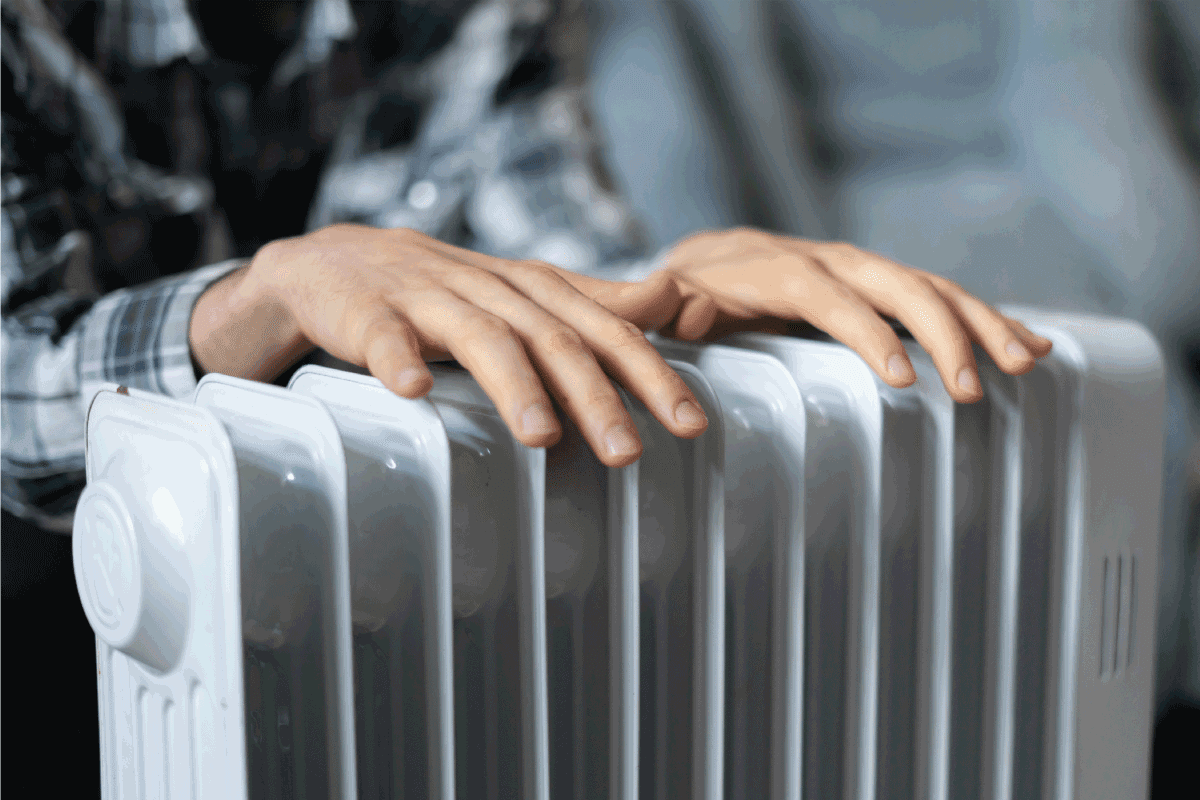
Conclusion
There are several reasons why an electric heater would turn off and on repeatedly, and it is important to check the different causes to address the issue.
Our article about how much it costs to run an electric furnace here might interest you.
We have an article about the size of electric furnaces that you might find interesting.

